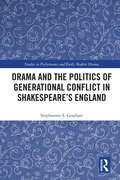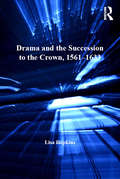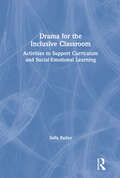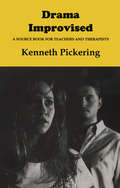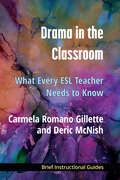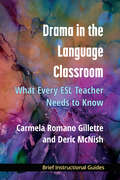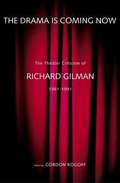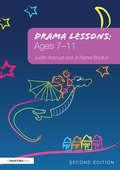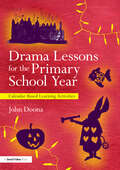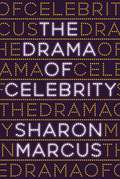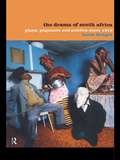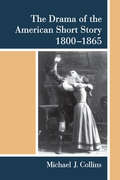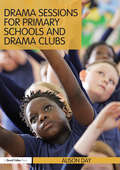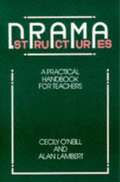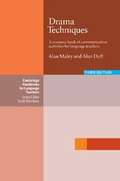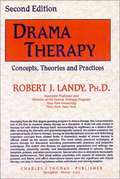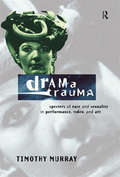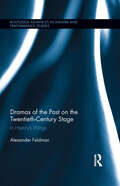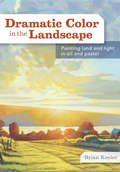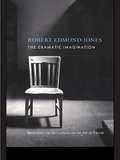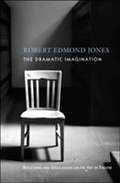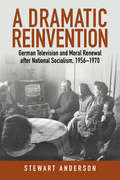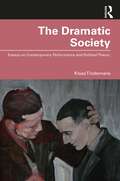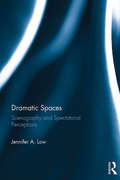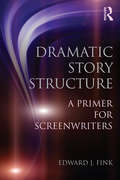- Table View
- List View
Drama and the Politics of Generational Conflict in Shakespeare's England (Studies in Performance and Early Modern Drama)
by Stephannie GearhartDrama and the Politics of Generational Conflict in Shakespeare’s England examines the intersection between art and culture and explains how ideas about age circulated in early modern England. Stephannie Gearhart illustrates how a variety of texts – including drama by Shakespeare, Jonson, and Middleton – placed elders’ and youths’ voices in dialogue with one another to construct the period’s ideology of age and shape elder-youth relations.
Drama and the Succession to the Crown, 1561-1633 (Studies In Performance And Early Modern Drama Ser.)
by Lisa HopkinsThe succession to the throne, Lisa Hopkins argues here, was a burning topic not only in the final years of Elizabeth but well into the 1630s, with continuing questions about how James's two kingdoms might be ruled after his death. Because the issue, with its attendant constitutional questions, was so politically sensitive, Hopkins contends that drama, with its riddled identities, oblique relationship to reality, and inherent blurring of the extent to which the situation it dramatizes is indicative or particular, offered a crucial forum for the discussion. Hopkins analyzes some of the ways in which the dramatic works of the time - by Marlowe, Shakespeare, Webster and Ford among others - reflect, negotiate and dream the issue of the succession to the throne.
Drama for the Inclusive Classroom: Activities to Support Curriculum and Social-Emotional Learning
by Sally BaileyIncorporate drama and improvisation into your classroom to build confidence, support social-emotional learning, and engage every student in the curriculum. This book’s detailed and easy-to-implement chapters walk you through using drama to develop critical listening and communication skills, conflict resolution abilities, behavior regulation, and even grow new skills in math, literature, geography, and more! Each chapter builds on the skills learned in previous lessons, allowing you to increase the complexity as students progress. Designed for use with inclusive classrooms as well as dedicated special education programs, this guide features adaptable activities to include students at every ability level.
Drama Improvised: A Sourcebook for Teachers and Therapists
by Kenneth PickeringThis book provides a practical, accessible, and inexpensive guide to using improvisation in drama, which lies at the root of actor training, educational drama and drama therapy, in a wide variety of situations. It is useful for teachers, organizers of drama workshops, therapists and trainers.
Drama in the Language Classroom: What Every ESL Teacher Needs to Know
by Carmela Romano Gillette Deric McNish"Our particular approach is built on the belief that using elements of drama and the performing arts in the language classroom works best when it builds on concepts of language development that have been tested and supported. As language scholars, we know that honoring students’ identities is important; that investment in the learning process must be nurtured; that learners respond to material that is engaging, relevant, and authentic; that learners must use the language and not just study it; and that affective factors can sometimes impede learning." ---Carmela Romano Gillette & Deric McNish This e-book weaves together cutting-edge research and practices from the fields of theater and TESOL. After providing an overview of how drama can be used in the language classroom, Gillette (a TESOL expert) and McNish (an expert in actor training) present a collection of resources teachers need to begin using drama, including practical classroom-tested and evidence-based techniques. They show how: * theater games can build confidence. * performing (beyond role-plays) can develop a deeper context for speaking. * improvisation can create authentic opportunities for language use. * para- and extra-linguistic techniques can improve expression and meaningful communication. * activities like script analysis can be used in reading and writing classes (and to examine differences between spoken and written language). * drama-based activities can provide a platform for examining cultural norms and practices. Each section includes sample activities for improving fluency and assessment suggestions. ?No experience with performance or drama required to learn how to incorporate these practices into your ESL classroom!
Drama in the Language Classroom: What Every ESL Teacher Needs to Know
by Carmela Romano Gillette Deric McNishDrama in the Language Classroom weaves together cutting-edge research and practices from the fields of theater and TESOL. After providing an overview of how drama can be used in the language classroom, Carmela Romano Gillette (a TESOL expert) and Deric McNish (an expert in actor training) present a collection of resources teachers need to begin using drama, including practical classroom-tested and evidence-based techniques. They show how theater, performance, and improvisation can help students build confidence, develop a deeper context for speaking, and create authentic opportunities for language use. In addition, they outline the para- and extra-linguistic techniques that can improve expression and meaningful communication. Each section includes sample activities, such as script analysis for improving fluency, and assessment suggestions. Readers do not need to have experience with performance or drama to learn how to incorporate these practices into the ESL classroom.
The Drama Is Coming Now: The Theater Criticism of Richard Gilman, 1961-1991
by Richard Gilman Gordon RogoffThis engrossing book presents the first collection in more than three decades of one of America's finest drama critics. Richard Gilman chronicles a major period in American theater history, one that witnessed the birth or spread of Off-Broadway, regional theater, nonprofit companies, and avant-garde performance, as well as growing interest in plays by women and minorities and in world drama. His writing, however, is more than a revealing look at an era. It is criticism for the ages. Insightful, provocative, and impassioned, the articles represent the full range of Gilman's interests. There are essays, profiles, and book reviews dealing with such topics as the "new naturalism" in theater, Brecht's collected plays, and the legacy of Stanislavski. There is also a generous sampling of Gilman's comments on plays by O'Neill, Miller, Chekhov, Albee, Ibsen, Anouilh, Beckett, Ionesco, Pinter, Fugard, and many others.
Drama Lessons: Ages 7-11
by Judith Ackroyd Jo Barter-BoultonDrama Lessons: Ages 7–11 offers an exciting and varied range of tried and tested lessons tailor-made for busy teachers. Drama Lessons: Ages 7–11 emerges from the continuing positive responses to Drama Lessons for Five to Eleven Year Olds (2001). In this book you will find a carefully chosen selection of the best lessons from the original book, plus some exciting new material – a combination of brand new and classic lessons. This new collection introduces Literacy Alerts which identify how the drama activities develop aspects of literacy and suggest additional literacy activities. For each lesson plan, essential resources and timing information are provided. The lessons cover a range of themes and curriculum areas. Full of pick-up-and-go lesson plans, this book will be of enormous interest to specialists and non-specialists of drama alike. All primary teachers, literacy coordinators and teaching assistants should have this book in their hands and it will give all trainee teachers a flying start in their school placements.
Drama Lessons for the Primary School Year: Calendar Based Learning Activities
by John DoonaA year of drama – ready to use schemes at your fingertips. 25 topical schemes of work 100+ drama lessons 'This book really will offer some new and exciting ideas for teachers to teach. Even teachers who enjoy their job often complain that they become stale after teaching the same things every year. They look for new ideas that will reignite their enthusiasm. I think this book could offer some sparks' Jo Howells, English Advisor, Warwickshire Educational Development Service Looking to engage, enthral and educate your pupils in timely and topical drama- based activities? In need of dynamic and inventive cross-curricular exercises for single lessons, extended units or school assemblies? From the September blues of change, through Great Fires, Guy Fawkes, Antarctic penguins, Rainbow Fish and Chinese Walls to Mandela’s mighty day, this book offers a fascinating array of lives to be lived and journey’s to be made. Drama Lessons for the Primary School Year will enable teachers to develop their expertise and confidence in order to create active and imaginative schemes of drama for the classroom. It offers a programme of ready-to-run workshops linked to specific dates in the calendar and specific themes into which teachers can readily dip on a regular basis. The first section uncovers the author’s own creative processes in generating drama experience and offers it to the reader in a set of simple, practical steps. The rest of the book is a wide-ranging compendium of schemes of work attached to specific calendar dates throughout the school year. These detailed drama lesson plans can be run as ‘one-off’ workshops or can be used by teachers as a basis for creating their own drama-led curriculum experiences. The book offers a practical structure to support these new creative planning tasks. This indispensable resource is for all Primary teachers looking for inspiration in developing effective drama sessions, exploring kinaesthetic learning, and developing creative cross-curricular approaches to their teaching.
The Drama of Celebrity
by Sharon MarcusA bold new account of how celebrity worksWhy do so many people care so much about celebrities? Who decides who gets to be a star? What are the privileges and pleasures of fandom? Do celebrities ever deserve the outsized attention they receive?In this fascinating and deeply researched book, Sharon Marcus challenges everything you thought you knew about our obsession with fame. Icons are not merely famous for being famous; the media alone cannot make or break stars; fans are not simply passive dupes. Instead, journalists, the public, and celebrities themselves all compete, passionately and expertly, to shape the stories we tell about celebrities and fans. The result: a high-stakes drama as endless as it is unpredictable.Drawing on scrapbooks, personal diaries, and vintage fan mail, Marcus traces celebrity culture back to its nineteenth-century roots, when people the world over found themselves captivated by celebrity chefs, bad-boy poets, and actors such as the “divine” Sarah Bernhardt (1844–1923), as famous in her day as the Beatles in theirs. Known in her youth for sleeping in a coffin, hailed in maturity as a woman of genius, Bernhardt became a global superstar thanks to savvy engagement with her era’s most innovative media and technologies: the popular press, commercial photography, and speedy new forms of travel.Whether you love celebrity culture or hate it, The Drama of Celebrity will change how you think about one of the most important phenomena of modern times.
The Drama of South Africa: Plays, Pageants and Publics Since 1910
by Loren KrugerThe Drama of South Africa comprehensively chronicles the development of dramatic writing and performance from 1910, when the country came into official existence, to the advent of post-apartheid. Eminent theatre historian Loren Kruger discusses well-known figures, as well as lesser-known performers and directors who have enriched the theatre of South Africa. She also highlights the contribution of women and other minorities, concluding with a discussion of the post-apartheid character of South Africa at the end of the twentieth century.
The Drama of the American Short Story, 1800-1865
by Michael J. CollinsThe Drama of the American Short Story, 1800-1865 argues that to truly understand the short story form, one must look at how it was shaped by the lively, chaotic, and deeply politicized world of 19th-century transatlantic theater and performance culture. By resurrecting long-neglected theatrical influences on representative works of short fiction, Michael J. Collins demonstrates that it was the unruly culture of the stage that first energized this most significant of American art forms. Whether it was Washington Irving's first job as theater critic, Melville's politically controversial love of British drama, Alcott's thwarted dreams of stage stardom, Poe and Lippard's dramatizations of peculiarly bloodthirsty fraternity hazings, or Hawthorne's fascination with automata, theater was a key imaginative site for the major pioneers of the American short story. The book shows how perspectives from theater studies, anthropology, and performance studies can enrich readings of the short-story form. Moving beyond arbitrary distinctions between performance and text, it suggests that this literature had a social life and was engaged with questions of circumatlantic and transnational culture. It suggests that the short story itself was never conceived as a nationalist literary form, but worked by mobilizing cosmopolitan connections and meanings. In so doing, the book resurrects a neglected history of American Federalism and its connections to British literary forms.
Drama Sessions for Primary Schools and Drama Clubs
by Alison DayDrama Sessions for Primary Schools and Drama Clubs is an indispensable guide designed to help you run effective and enjoyable drama sessions in your primary school for a whole academic year. The author outlines thirty-three practical and user-friendly sessions, each one built around developing the social skills needed by children to become effective and positive communicators. Each session has guided time allocations and thorough explanations of what each exercise should achieve. The final session of the term culminates in a ‘show and tell’ performance in which children can show their family and friends what they have learnt. As well as the sessions, this book also includes: Links to the national curriculum and SEAL; Notes on ‘performance’; Health and safety; Extra sessions for use in smaller spaces; Explanations of the pedagogical benefits of every exercise. This unique and practical book will be of interest to all teachers who need to incorporate drama into everyday classroom learning as well as drama teachers and practitioners looking to run successful, interesting and fun drama sessions for their primary pupils.
Drama Structures: A Practical Handbook for Teachers
by Cecily O'Neill ; Alan LambertThis is a teacher's manual, providing fifteen developing lesson structures on different themes involving the pupils in a whole range of drama and learning activities. Notes on practical teaching problems and possible developments for each sequence are given on facing pages. Two further sections of the book provide a simple theoretical framework for drama teaching, and consider some key strategies. This book is for both non-specialists and drama teachers who want to develop their work further. It will be of value to all teachers using drama approaches and strategies in the school curriculum.
Drama Techniques: A Resource Book of Communication Activities for Language Teachers
by Alan Maley Alan Duff Penny UrThe fully revised edition of this 'classic' helps teachers give their learners the tools they need to express themselves through a range of stimulating drama contexts. This completely revised edition of the classic title Drama Techniques provides: *150 ideas for interesting and productive fluency practice *a large selection of drama-based techniques which focus learners' attention on communicative tasks or activities *techniques suitable for all levels *clear instructions for the teacher *advice on how to use the techniques in the classroom
Drama Therapy: Concepts, Theories and Practices
by Robert J. LandySpecially collated to introduce and expound on drama therapy with the following headlines put into study; Part I: Drama Therapy in Context Part II: The Conceptual Basis of Drama Therapy Part III: The Techniques of Drama Therapy Part IV: The Populations and Settings for Drama Therapy Part V: Research in Drama Therapy
Drama Trauma: Specters of Race and Sexuality in Performance, Video and Art
by Timothy MurrayIn this engaging cross-disciplinary study, Timothy Murray examines the artistic struggle over traumatic fantasies of race, gender, sexuality, and power. Establishing a retrospective dialogue between past and present, stage and video, Drama Trauma links the impact of trauma on recent political projects in performance and video with the specters of difference haunting Shakespeare's plays. The book provides close readings of cultural formations as diverse as Shakespearean drama, the Statue of Liberty, contemporary plays by women, African-American performance, and feminist interventions in video, performance and installation. The texts discussed include: * installations by Mary Kelly and Dawn Dedeaux, * plays by Ntozake Shange, Rochelle Owens, Adrienne Kennedy, Marsha Norman and Amiri Baraka * performances by Robbie McCauley, Jordan, Orlan, and Carmelita Tropicana * stage, film and video productions of King Lear, Othello, Romeo and Juliet and All's Well that Ends Well.
Dramas of the Past on the Twentieth-Century Stage: In History’s Wings (Routledge Advances in Theatre & Performance Studies #27)
by Alexander FeldmanThis book defines and exemplifies a major genre of modern dramatic writing, termed historiographic metatheatre, in which self-reflexive engagements with the traditions and forms of dramatic art illuminate historical themes and aid in the representation of historical events and, in doing so, formulates a genre. Historiographic metatheatre has been, and remains, a seminal mode of political engagement and ideological critique in the contemporary dramatic canon. Locating its key texts within the traditions of historical drama, self-reflexivity in European theatre, debates in the politics and aesthetics of postmodernism, and currents in contemporary historiography, this book provides a new critical idiom for discussing the major works of the genre and others that utilize its techniques. Feldman studies landmarks in the theatre history of postwar Britain by Weiss, Stoppard, Brenton, Wertenbaker and others, focusing on European revolutionary politics, the historiography of the World Wars and the effects of British colonialism. The playwrights under consideration all use the device of the play-within-the-play to explore constructions of nationhood and of Britishness, in particular. Those plays performed within the framing works are produced in places of exile where, Feldman argues, the marginalized negotiate the terms of national identity through performance.
Dramatic Color in the Landscape
by Brian KeelerFill your paintings with spring light, winter scenes, autumn ambiance, summer sunsets, and more!Dramatic Color in the Landscape will help you to discover ways to enliven your paintings with the brilliant color of your favorite seasons while exploring simple yet effective color concepts and ideas evident in everyday and dramatic lighting situations. Learn to continually evolve and improve upon your landscape compositions, step by step, with countless helpful tips and techniques designed to help you express your interpretation of any given scene.
The Dramatic Imagination: Reflections and Speculations on the Art of the Theatre, Reissue (A\theatre Arts Book Ser.)
by Robert Edmond JonesThe Dramatic Imagination is one of the few enduring works written about set design.Robert Edmond Jones's innovations in set design and lighting brought new ideas to the stage, but it is greater understanding of design - its role at the heart of theater - that has continued to inspire theater students. The volume includes "A New Kind of Drama," "To a Young Stage Designer" and six other of Jones's "reflections."
The Dramatic Imagination: Reflections and Speculations on the Art of the Theatre
by Robert Edmond JonesThe author's innovations in set design and lighting brought new ideas to the stage, but it is greater understanding of design - its role at the heart of theater - that has continued to inspire theater students.
A Dramatic Reinvention: German Television and Moral Renewal after National Socialism, 1956–1970
by Stewart AndersonFollowing World War II, Germany was faced not only with the practical tasks of reconstruction and denazification, but also with the longer-term mission of morally “re-civilizing” its citizens—a goal that persisted through the nation’s 1949 split. One of the most important mediums for effecting reeducation was television, whose strengths were particularly evident in the thousands of television plays that were broadcast in both Germanys in the 1950s and 1960s. This book shows how TV dramas transcended state boundaries and—notwithstanding the ideological differences between East and West—addressed shared issues and themes, helping to ease viewers into confronting uncomfortable moral topics.
The Dramatic Society: Essays on Contemporary Performance and Political Theory
by Klaas TindemansAll societies are, by their very nature, dramatic. They present themselves, especially for those who want to look back in time, as a fascinating and confusing whole of theatrical events and constructions. Sometimes the theatre itself succeeds in capturing that fascination and confusion. This book describes the dramatic society in the form of case studies that link politics, history and culture. The Dramatic Society uses selected plays to examine specific moments in history. Its range of subjects are extremely diverse, including Medea as an icon of terrorism, a choreography based upon Shakespeare’s As You Like It, horror movies about the German unification, a truth commission dealing with "human zoos", and the reconstruction of Ai Weiwei’s troubles with the tax authorities. This collection of insightful essays deals with theatrical performances – including happenings, installations and movies – of the past fifty years, with every chapter attempting to link artistic events with politics and political theory, from Hannah Arendt to Slavoj Žižek. This is a revealing assessment of the ways in which drama and politics become intertwined, offering crucial insights for scholars and students of theatre studies, performance studies, contemporary politics and cultural studies.
Dramatic Spaces: Scenography and Spectatorial Perceptions
by Jennifer LowFor literary scholars, plays are texts; for scenographers, plays are performances. Yet clearly a drama is both text and performance. Dramatic Spaces examines period-specific stage spaces in order to assess how design shaped the thematic and experiential dimensions of plays. This book highlights the stakes of the debate about spatiality and the role of the spectator in the auditorium – if audience members are co-creators of the drama, how do they contribute? The book investigates: Roman comedy and Shakespearean dramas in which the stage-space itself constituted the primary scenographic element and actors’ bodies shaped the playing space more than did sets or props the use of paid applauders in nineteenth-century Parisian theaters and how this practice reconfigured theatrical space transactions between stage designers and spectators, including work by László Moholy-Nagy, William Ritman, and Eiko Ishioka Dramatic Spaces aims to do for stage design what reader-response criticism has done for the literary text, with specific case studies on Coriolanus, The Comedy of Errors, Romeo and Juliet, Tales of Hoffman, M. Butterfly and Tiny Alice exploring the audience’s contribution to the construction of meaning.
Dramatic Story Structure: A Primer for Screenwriters
by Edward J. FinkA successful screenplay starts with an understanding of the fundamentals of dramatic story structure. In this practical introduction, Edward J. Fink condenses centuries of writing about dramatic theory into ten concise and readable chapters, providing the tools for building an engaging narrative and turning it into an agent-ready script. Fink devotes chapters to expanding on the six basic elements of drama from Aristotle’s Poetics (plot, character, theme, dialogue, sound, and spectacle), the theory and structure of comedy, as well as the concepts of unity, metaphor, style, universality, and catharsis. Key terms and discussion questions encourage readers to think through the components of compelling stories and put them into practice, and script formatting guidelines ensure your finished product looks polished and professional. Dramatic Story Structure is an essential resource not only for aspiring screenwriters, but also for experienced practitioners in need of a refresher on the building blocks of storytelling.
